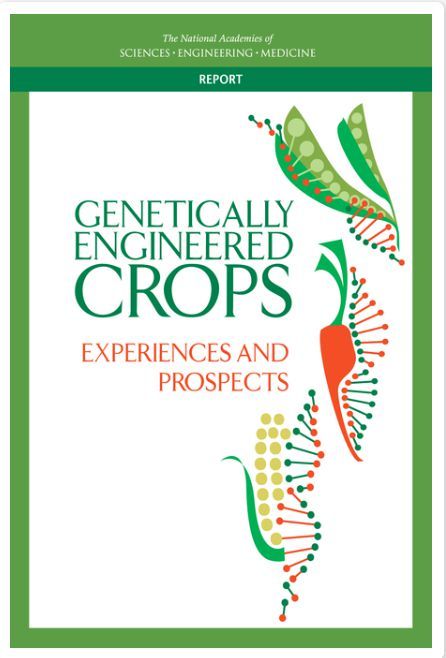Genetically engineered crops: experiences and prospects
Genetically engineered (GE) crops were first introduced commercially in the 1990s. After two decades of production, some groups and individuals remain critical of the technology based on their concerns about possible adverse effects on human health, the environment, and ethical considerations. At the same time, others are concerned that the technology is not reaching its potential to improve human health and the environment because of stringent regulations and reduced public funding to develop products offering more benefits to society.

While the debate about these and other questions related to the genetic engineering techniques of the first 20 years goes on, emerging genetic-engineering technologies are adding new complexities to the conversation.
Genetically Engineered Crops builds on previous related Academies reports published between 1987 and 2010 by undertaking a retrospective examination of the purported positive and adverse effects of GE crops and to anticipate what emerging genetic-engineering technologies hold for the future. This report indicates where there are uncertainties about the economic, agronomic, health, safety, or other impacts of GE crops and food, and makes recommendations to fill gaps in safety assessments, increase regulatory clarity, and improve innovations in and access to GE technology.
Downloads/Links
- Herausgeber:inNational Academy of Sciences (US)



